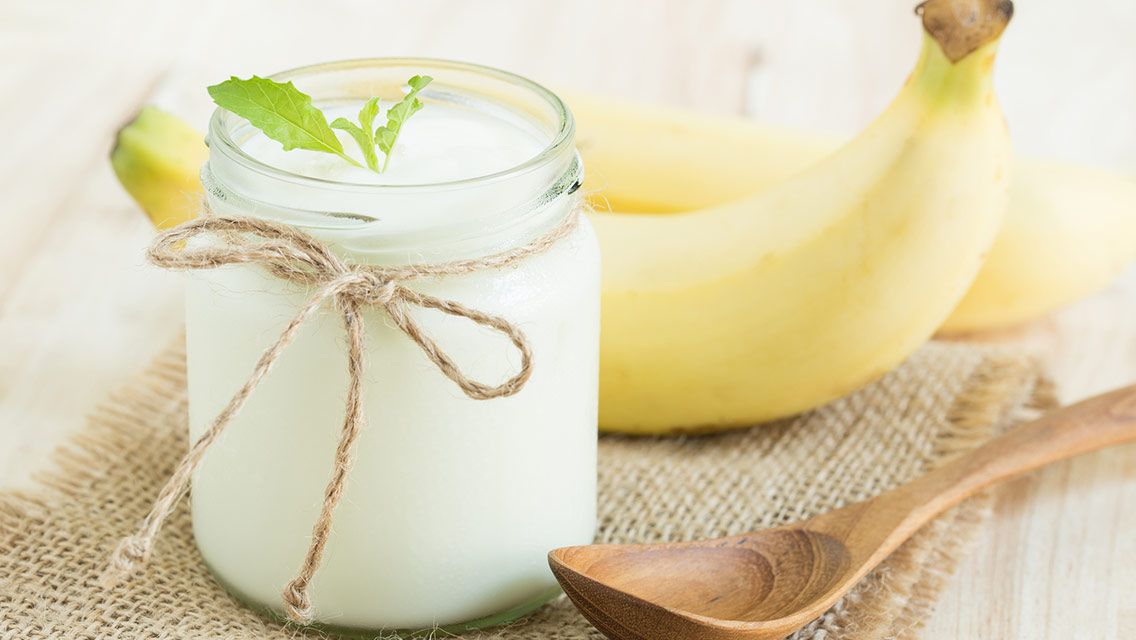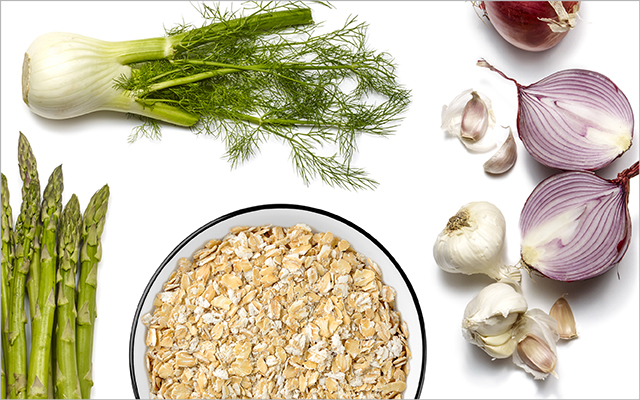Probiotics are living microorganisms that support a diverse gut microbiome. They can be found in fermented foods, such as yogurt, kefir, kimchi, and sauerkraut.
They are also available in supplement form. There are many types of probiotics, and each supports different functions, such as digesting food, producing vitamins, or fighting disease.
Prebiotics, meanwhile, are sources of dietary fiber — found in such foods as bananas and potatoes — that feed probiotic microorganisms.
It’s important, for the sake of your muscles and overall health, to sustain a balanced and diverse community of bacteria. “A lack of diversity can actually disrupt the maintenance of lean muscle mass,” Koszyk explains. “When we have a healthy gut microbiota with more diverse microorganisms, they can communicate better to support the quality and functionality of the muscles.”
Insufficient diversity can also throw off your ability to digest certain nutrients, including protein and carbs. “Instead of ‘You are what you eat,’ you are what you’re able to digest,” says Ivy Carson, NP-BC, IFMCP, a board-certified adult gerontology nurse practitioner and functional-medicine practitioner based in Troy, Mich., who works with Parsley Health. If you can’t digest protein, carbs, or other nutrients, those nutrients can’t do their jobs to keep your muscles healthy. (Learn more about how your gut microbiome affects athletic performance at “How Your Gut Microbiome Can Affect Your Athletic Performance.”)
Many foods naturally contain probiotics and prebiotics, Carson notes. If you have a significant imbalance, you might consider adding a supplement; digestive issues are usually a red flag, she adds.
Tips to Optimize Your Probiotics and Prebiotics Intake
- Fermented foods like yogurt, kefir, kimchi, sauerkraut, tempeh, and aged cheeses are natural sources of probiotics. (For tips on making your own at home, visit “How to Make Coconut-Water Kefir, Greek Yogurt, and Other Fermented Foods.”)
- Bananas, onions, garlic, soybeans, and Jerusalem artichokes are good sources of prebiotics.
- Supplements can help people with an imbalanced gut microbiome. The Cleveland Clinic generally recommends choosing a product with at least 1 billion colony-forming units and containing the well-researched probiotics Lactobacillus, Bifidobacterium, Bacillus, or Saccharomyces boulardii. Still, because there are so many types of probiotics, you might want to consult a registered dietitian or functional-medicine practitioner to help you choose which strain would be most beneficial to you. Stool tests may also help determine whether there are specific imbalances to address.
(Go deeper at “Everything You Need to Know About Probiotics” and “Why Prebiotics Are as Important as Probiotics.”)





This Post Has 0 Comments